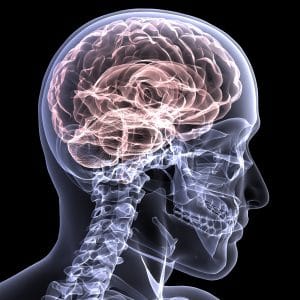Traumatic brain injury is the result of sudden trauma to the head. Traumatic brain injury can cause various cognitive and physical impairments depending on the severity of the injury and the placement within the brain. If a traumatic brain injury has been caused by someone else’s actions, a personal injury lawyer may be able to assist in pursuing legal action against the responsible person or company.
Traumatic Brain Injury Causes
Most traumatic brain injuries are caused by a traumatic event that resulted in the victim’s head impacting an object or being pierced by an object. Traffic accidents, construction accidents, and falls are some of the most common causes of head trauma. Sports injuries, violence, and explosions may also cause traumatic brain injuries.
Medical Attention Following Trauma
Immediately following an incident in which a traumatic brain injury has occurred, shock may set in and hide symptoms for a period of time. For this reason, it is important for victims of head trauma to seek medical attention. Physicians may order tests which can identify traumatic brain injuries. Diagnosing and treating brain injuries early can be helpful in preventing secondary injuries and worsening conditions.
Diagnosing Traumatic Brain Injuries
The Glasgow Coma Scale is the first diagnostic tool that physicians typically use to assess the severity of brain injuries. The Glasgow Coma Scale uses clues from a patient’s motor control and speech patterns to rate the degree of brain injuries. Physicians will also assess the details of the traumatic event to identify areas that may have been damaged. Scanning tests such as CT scans and MRIs will usually be ordered to obtain a complete picture of the damage to the brain.
Brain Injury Symptoms
Symptoms resulting from traumatic brain injuries may include both physical and cognitive elements. Patients that have been diagnosed with traumatic brain injuries should be monitored for symptoms that may indicate worsening conditions. Symptoms that occur days or weeks after a traumatic injury may indicate a change in condition and should be reassessed.
Symptoms that may appear following a traumatic brain injury include:
- Nausea
- Dizziness
- Headaches
- Changes in sleeping patterns
- Changes in behavior
- Disorientation and blackouts
- Light and sound sensitivity
- Memory problems
- Seizures
- Numbness of limbs and digits
- Slurred speech
- Dilation of the pupils or just one pupil
- Fluid secreted from the nose or ear
Results of Traumatic Brain Injury
Traumatic brain injuries can severely alter a victim’s life. In some cases, brain injuries can alter the personality of the patient and make daily tasks difficult to complete. Patients may lose employment because of the injuries, which can have severe consequences on a patient’s mental state and well being. Traumatic brain injuries may affect every aspect of a patient’s life including the ability to participate in favored activities and the quality of relationships following cognitive changes. Traumatic brain injuries may also require costly treatments and therapies, which can cause financial hardship.
Brain Injury Liability
The party that is responsible for covering costs associated with traumatic brain injuries may vary depending on the situation and location in which the brain trauma occurred. If the brain injury was the result of a traffic accident, the driver that caused the accident may be liable for damages. If a brain injury was caused by the intentional actions of another, as in assault and battery, the individual may face criminal charges in addition to being held liable for the financial hardships of the victim.
Orlando Traumatic Brain Injury Lawyers
Pursuing compensation for traumatic brain injuries can become complicated and may rely upon the testimony of experts. A traumatic brain injury lawyer can help patients understand the best way to successfully pursue legal action to receive compensation for medical costs associated with brain injuries. A traumatic brain injury lawyer may also be able to obtain compensation for pain and suffering, and the loss of quality of life resulting from the injuries.
Sources:
“Injury Prevention & Control: Traumatic Brain Injury.” Centers for Disease Control and Prevention. Centers for Disease Control and Prevention, 24 Feb. 2014. Web. 9 June 2014. <http://www.cdc.gov/traumaticbraininjury/data/rates.html>
“NINDS Traumatic Brain Injury Information Page.” Traumatic Brain Injury Information Page: National Institute of Neurological Disorders and Stroke (NINDS). U.S.Department of Health and Human Services, 3 June 2014. Web. 9 June 2014. <http://www.ninds.nih.gov/disorders/tbi/tbi.htm>

